Minimalist Self-Care Routines for Simple, Fulfilling Living
Category: Lifestyle
Discover the Power of Minimalist Self-Care Routines
If you're someone who feels overwhelmed by the endless self-care advice flooding your feed, you're not alone. Many people seeking to embrace minimalism arrive here wanting clarity—not more clutter, even in their self-care habits. You’ve probably experimented with complex routines that require expensive products or elaborate schedules, only to feel drained or guilty when they don’t stick. This post is crafted precisely for individuals like you who want practical, easy-to-follow guidance that aligns with a minimalist lifestyle. It recognizes that your goal is to nurture yourself authentically without adding unnecessary tasks or expenses to your day.
Here, we peel back the noise to reveal self-care routines rooted in simplicity and mindfulness—routines that nourish body, mind, and soul with intention and ease. Unlike generic advice, we focus on minimalism’s essence: removing the non-essential to make space for what truly matters. These routines are adaptable whether you’re new to minimalism or deepening your practice, and designed to help you reclaim time and mental clarity while enhancing wellness. Keep reading to explore minimalist self-care ideas that you can integrate seamlessly into your life for greater fulfillment and peace.
- Discover the Power of Minimalist Self-Care Routines
- Understanding Minimalist Self-Care
- Assessing Your Current Routine
- Creating a Simple Morning Self-Care Ritual
- Minimalist Skin and Body Care Tips
- Mindfulness and Mental Wellness Practices
- Decluttering Your Environment to Support Self-Care
- Simplifying Nutrition and Hydration for Better Energy
- Digital Detox and Screen Time Management
- Setting Boundaries and Saying No
- Sustaining Minimalist Self-Care Long Term
Understanding Minimalist Self-Care
At its core, minimalist self-care is a mindful approach that strips away the excess and hones in on essential practices that genuinely nurture your well-being. Unlike traditional self-care, which can often become overwhelming with elaborate steps, numerous products, and time-consuming rituals, minimalist self-care emphasizes simplicity, intention, and reducing mental and physical overload. It’s about doing less, but with greater purpose—focusing on quality rather than quantity.
Core Principles of Minimalist Self-Care:
- Intentionality: Every action is chosen deliberately to contribute positively to your health and happiness, avoiding mindless routines that add stress.
- Simplicity: Streamlining self-care to a few meaningful habits that fit naturally into your lifestyle, removing anything unnecessary.
- Sustainability: Creating routines that are easy to maintain daily without requiring excessive time, money, or energy.
- Focus on Essentials: Prioritizing self-care activities that impact your physical, mental, and emotional well-being without distraction.
- Mindfulness: Engaging fully with each self-care practice to deepen its benefits and foster presence rather than multitasking.
By embracing these principles, minimalist self-care helps you avoid the common pitfalls of modern wellness culture—such as burnout, decision fatigue, and consumerism—allowing space for true restoration. This not only enhances your overall quality of life but also aligns perfectly with a minimalist lifestyle that values clarity, purpose, and intentional living.
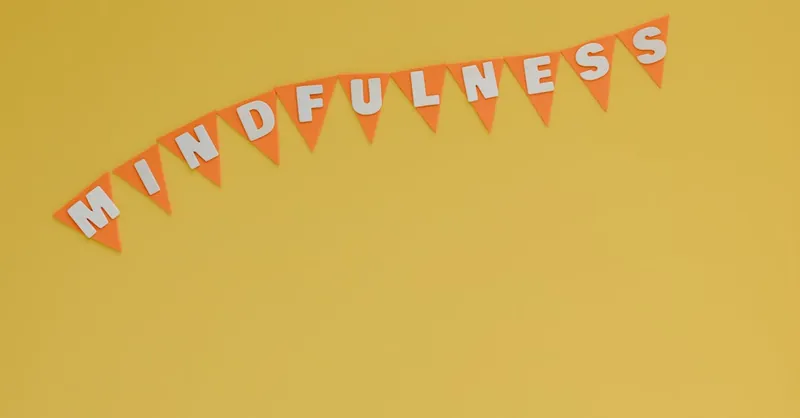
Image courtesy of Tara Winstead
Assessing Your Current Routine
Before simplifying your self-care routine, it’s essential to evaluate your existing habits with a mindful and honest eye. This reflective step allows you to identify practices that truly resonate with your well-being versus those that may be adding unnecessary complexity or stress. Consider your current self-care activities: which ones genuinely make you feel refreshed, grounded, or joyful? And conversely, which feel like obligations, time-sinks, or contribute to decision fatigue?
How to Evaluate Your Self-Care Habits Effectively
-
List Your Current Practices
Write down all the self-care activities you perform regularly—big or small. Include everything from morning skincare to journaling, exercise, digital detoxes, or weekend rituals. This comprehensive overview helps reveal the full scope of your routine. -
Gauge Emotional and Physical Impact
For each habit, ask yourself: “Does this make me feel better physically, mentally, or emotionally?” If a practice consistently leads to relaxation, clarity, or joy, it’s likely meaningful. If it triggers stress, overwhelm, guilt, or exhaustion, it may warrant reassessment. -
Identify Time and Resource Demands
Analyze how much time, money, and energy each activity requires. Minimalist self-care favors sustainable practices that easily fit into your life without draining your resources. Activities demanding excessive effort or expensive products might be candidates for simplification or elimination. -
Notice Patterns of Resistance or Avoidance
Pay attention to habits you often skip or postpone. Resistance to a routine can indicate it’s not aligning with your genuine needs or values—and could be adding unnecessary pressure rather than relief. -
Reflect on Intentions Behind Each Activity
Understanding why you engage in each practice helps clarify its importance. Is it driven by external expectations, trends, or marketing? Or is it a deeply personal ritual that nurtures your authentic self? Prioritize practices rooted in intentionality to support a minimalist approach.
By thoughtfully assessing your current self-care routine using these steps, you can streamline your habits to focus on what truly nourishes you. This process lays the groundwork for designing a minimalist self-care routine that is not only simpler but also more impactful, sustainable, and tailored to your unique lifestyle and well-being goals.

Image courtesy of cottonbro studio
Creating a Simple Morning Self-Care Ritual
Starting your day with a minimalist morning self-care ritual can set a calm, focused tone that carries through your entire day. The key is to embrace easy, mindful habits that nourish your body and mind without overwhelming your schedule or decision-making process. Incorporating just a few intentional practices—hydration, meditation, minimal skincare, and gentle movement—can enhance your well-being and prepare you to face daily challenges with clarity and grace.
Hydration: Nourish Your Body First Thing
Drinking a glass of water immediately upon waking is a simple yet powerful habit. It kickstarts your metabolism, rehydrates your body after hours of sleep, and awakens your mind. Opting for plain water keeps this step clean and uncomplicated, aligning perfectly with minimalist principles.
Meditation: Cultivate Mindfulness and Presence
Spending 5 to 10 minutes in meditation or mindful breathing helps center your thoughts and reduces morning anxiety. This practice requires no special equipment—just a quiet space and your focus—making it both sustainable and effective for mental clarity.
Minimal Skincare: Focus on Essentials
Instead of a multi-step regimen, adopt a minimal skincare routine with just the essentials: gentle cleanser, moisturizer, and sunscreen. This streamlining eliminates excess products and time, promoting a natural glow while protecting your skin without fuss.
Gentle Movement: Wake Your Body Gently
Incorporate light stretching, yoga, or a brief walk to ease muscle stiffness and increase circulation. These low-impact movements revitalize your body and mind in a way that feels nurturing rather than taxing, perfect for fostering a balanced start.
By committing to this simple, intentional morning self-care ritual, you embrace a minimalist approach that supports your physical health, mental clarity, and emotional balance—all without adding complexity or stress. This foundation allows you to move through your day with calm energy and focused presence, truly embodying the essence of minimalist self-care.
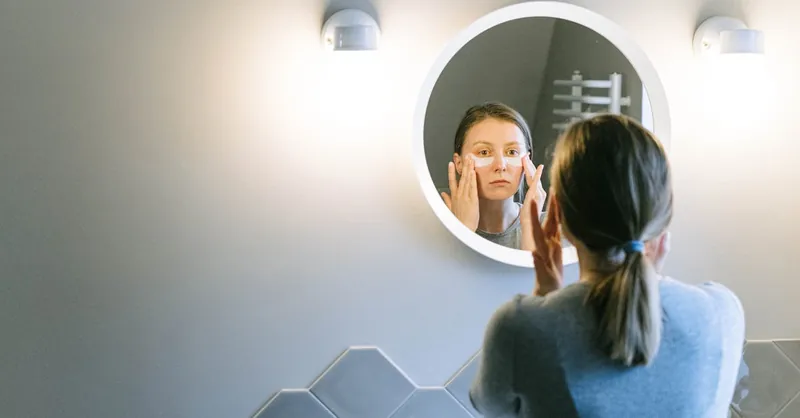
Image courtesy of Ivan Samkov
Minimalist Skin and Body Care Tips
When it comes to embracing minimalist self-care, simplifying your skin and body care routine is a crucial step toward saving time, money, and reducing waste. Instead of accumulating countless products promising miracle results, focus on selecting a few high-quality, multi-purpose items that meet your skin's fundamental needs. A minimalist skincare regimen typically includes just a gentle cleanser, a nourishing moisturizer, and a broad-spectrum sunscreen—each chosen for their efficacy, natural ingredients, and versatility.
How to Choose Effective Multi-Purpose Products
-
Prioritize Ingredients Over Brands
Look for products with clean, non-toxic, and nourishing ingredients that support your skin’s health without causing irritation. Simplifying means avoiding harsh chemicals and unnecessary additives found in many novelty or overly specialized products. -
Opt for Multi-Functional Formulas
Examples include a moisturizer with built-in SPF, tinted balms that hydrate and provide light coverage, or cleansing oils that double as makeup removers. These products reduce the total number you need, helping minimize clutter. -
Consider Your Skin Type and Environment
Tailor your choices to what your skin truly requires—whether it’s hydration, calming sensitive areas, or balancing oily zones—while accounting for seasonal changes and lifestyle factors like sun exposure.
Cutting Down on Excessive Beauty Rituals
A minimalist approach encourages eliminating lengthy, redundant routines that can lead to decision fatigue and unnecessary spending. Here’s how to streamline effectively:
- Limit Your Routine to Daily Essentials: Resist the temptation to add toner, serums, and exfoliants unless your skin specifically benefits from them.
- Simplify Shower and Body Care: Choose mild, fragrance-free body washes or bar soaps and a rich body oil or lotion that can also double as hand cream or cuticle conditioner.
- Set Realistic and Sustainable Habits: Instead of spending 30 minutes on skin care, commit to a consistent 5-10 minute routine that fits easily into your day.
- Declutter and Donate Unused Products: Regularly evaluate your collection to keep only what works, ensuring everything you use provides visible benefits without excess.
By adopting this minimalist skin and body care mindset, you not only promote healthier skin but also contribute to a more sustainable lifestyle—reducing plastic waste and minimizing environmental impact. This intentional simplification helps you reclaim valuable time and financial resources, allowing self-care to feel like a genuine act of kindness towards yourself rather than a tedious task.
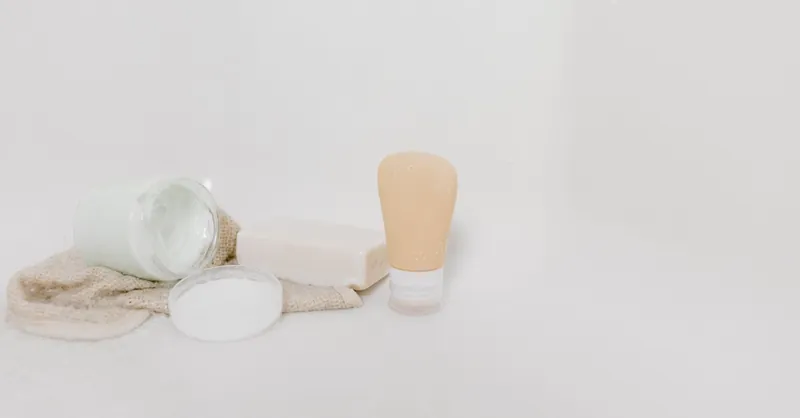
Image courtesy of Tara Winstead
Mindfulness and Mental Wellness Practices
Incorporating minimalist mindfulness and mental wellness practices into your self-care routine is a powerful way to support emotional balance and reduce stress without adding complexity. Mindfulness, when kept simple and intentional, enhances your awareness of the present moment and fosters a calm, grounded mindset—essential components of minimalist living. By choosing just a few impactful exercises, you can cultivate mental clarity and resilience without feeling overwhelmed by exhaustive wellness trends.
Simple Mindfulness Exercises to Try Daily
-
Focused Breathing (3–5 minutes)
Pause for a few minutes each day to take slow, deliberate breaths. Concentrate fully on the inhale and exhale, noticing sensations in your body. This quick practice reduces stress and centers your thoughts with minimal effort. -
Body Scan Meditation
Briefly scan your body from head to toe, observing areas of tension or ease without judgment. This technique promotes self-awareness and relaxation, helping you reconnect with physical sensations often overlooked in busy routines. -
Mindful Pause During Transitions
Use natural breaks in your day—before eating, starting work, or going to bed—as opportunities to pause, breathe deeply, and set an intention. These moments cultivate presence and interrupt overwhelm gently.
Journaling Prompts to Enhance Mental Clarity
Journaling is another minimalist tool for self-reflection and emotional processing. Instead of lengthy entries, focus on brief prompts that encourage insight without pressure, such as:
- What is one thing I am grateful for right now?
- What small win did I experience today?
- What emotion am I feeling in this moment, and what does it need?
Using these prompts regularly helps clarify thoughts, identify stressors, and cultivate gratitude—an essential mindset for mental wellness and minimalist self-care.
Managing Stress Without Overwhelm
Minimalist self-care emphasizes stress management techniques that are simple to integrate and sustainable long-term. Avoiding elaborate or time-consuming methods reduces the risk of feeling burdened by your wellness routine. Instead:
- Stick to one or two mindfulness exercises that resonate with you and fit your schedule.
- Practice acceptance of your present experience rather than pushing to “fix” every feeling immediately.
- Limit exposure to stress-inducing media or digital distractions to protect your mental space.
By weaving these minimalist mindfulness and mental wellness practices into your life, you create a nurturing foundation for mental clarity, emotional balance, and genuine self-compassion—all critical elements for thriving within a minimalist lifestyle.
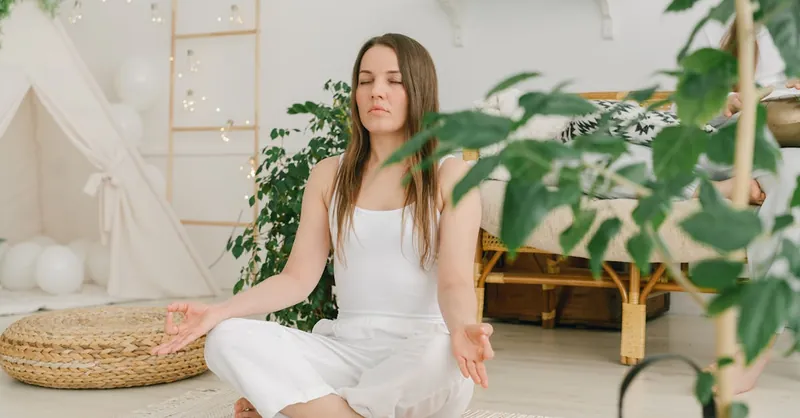
Image courtesy of Mikhail Nilov
Decluttering Your Environment to Support Self-Care
A tidy, intentional space plays a vital role in enhancing mental clarity and reinforcing your minimalist self-care routine. When your environment is free of clutter, your mind naturally feels lighter, less distracted, and more capable of focusing on restorative practices. Decluttering is more than just a physical task—it’s an act of self-love that cultivates calm and order, creating a sanctuary where self-care becomes effortless rather than overwhelming.
How Decluttering Enhances Mental Clarity and Well-Being
- Reduces Cognitive Overload: A cluttered space bombards your brain with excessive stimuli, increasing stress and decision fatigue. By simplifying your surroundings, you clear mental space for relaxation and mindful presence.
- Fosters Intentional Living: Removing excess items encourages you to engage only with what truly serves your well-being. This alignment deepens the impact of your self-care habits, as your home reflects your values of simplicity and focus.
- Supports Emotional Calm: A serene environment can soothe anxiety and improve mood, making it easier to commit to regular self-care practices without distraction or frustration.
Using Decluttering as a Form of Self-Love
Transform decluttering from a chore into a mindful ritual by:
-
Setting Clear Intentions
Approach decluttering with the mindset of creating space for what nurtures you, rather than simply discarding items. This intentionality turns the process into a nourishing practice of caring for yourself. -
Starting Small and Mindfully
Focus on one area—such as a drawer, desk, or shelf—at a time to avoid overwhelm. Notice how clearing physical clutter makes room for mental ease, reinforcing your commitment to minimalist self-care. -
Letting Go Compassionately
Release items that no longer serve your lifestyle or bring joy without guilt. Recognize that uncluttering is a gift to yourself, prioritizing your peace and well-being above attachment to possessions. -
Curating a Supportive Space
Intentionally choose and organize belongings that inspire calm, creativity, or comfort. Surrounding yourself with meaningful, functional items cultivates an environment that naturally supports self-care rituals.
By embracing decluttering as both a practical strategy and an act of self-kindness, you build an environment where minimalist self-care thrives. This clarity of space anchors your mental well-being and enables simple, authentic routines that nurture your body and mind effortlessly.
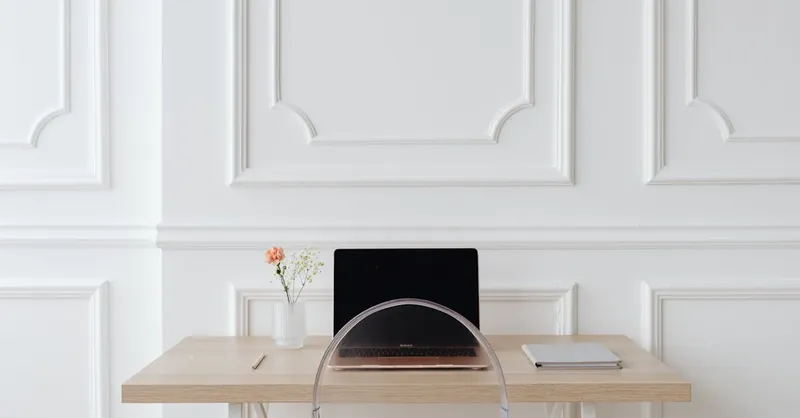
Image courtesy of Photo By: Kaboompics.com
Simplifying Nutrition and Hydration for Better Energy
Adopting a minimalist lifestyle extends naturally into your nutrition and hydration habits by focusing on simple, nourishing meals and consistent hydration that boost energy without complicating your day. Instead of overwhelming yourself with elaborate recipes or restrictive diets, embrace straightforward strategies that prioritize whole foods and mindful drinking routines to sustain your body efficiently and effortlessly.
Easy, Nourishing Meals That Complement Minimalism
-
Prioritize Whole, Unprocessed Foods
Incorporate a balanced mix of vegetables, fruits, whole grains, lean proteins, and healthy fats into your meals. These nutrient-dense foods are versatile and minimally packaged, helping reduce food waste and decision fatigue. -
Opt for Simple Meal Prep
Prepare meals using a limited number of ingredients and uncomplicated cooking methods, such as roasting vegetables, steaming grains, or assembling salads. Batch cooking staples like quinoa, roasted chicken, or legumes can simplify your weekly menu and save time. -
Embrace One-Pot or Sheet-Pan Recipes
These cooking styles reduce cleanup and streamline preparation, perfect for maintaining a minimalist kitchen routine without sacrificing nutrition. -
Mindful Portioning
Eat intuitively by tuning into hunger and fullness cues instead of strict portion control. This fosters a compassionate relationship with food aligned with minimalist self-care principles.
Hydration Habits to Sustain Energy and Clarity
-
Keep Water Easily Accessible
Always have a reusable water bottle nearby to encourage regular sipping throughout the day. This practice supports sustained hydration without interrupting your flow or adding complexity. -
Simplify with Infused Water
Instead of purchasing flavored drinks, naturally enhance water with slices of lemon, cucumber, or fresh herbs. This minimally processed approach adds subtle flavor without artificial additives. -
Create Routine Hydration Cues
Link drinking water to existing habits—like drinking a glass after each bathroom break or before every meal—to develop a seamless, automatic hydration practice that fits your minimalist lifestyle.
By integrating these minimalist nutrition and hydration strategies, you cultivate sustained energy, mental clarity, and physical well-being with minimal effort and mental clutter. This approach honors your commitment to simplicity while nourishing your body effectively, making well-being an accessible, natural extension of minimalist living.
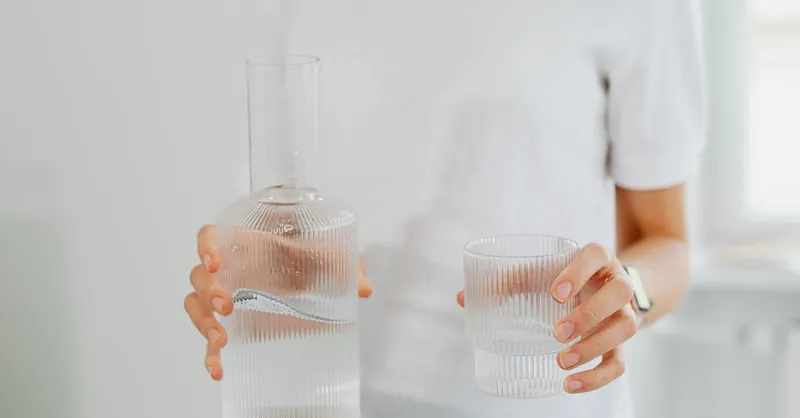
Image courtesy of Photo By: Kaboompics.com
Digital Detox and Screen Time Management
In our digitally driven world, managing screen time and embracing digital detoxes are essential minimalist self-care strategies that foster mental clarity and emotional balance. Excessive exposure to screens—from smartphones to computers—can lead to digital fatigue, decreased focus, and heightened stress levels, all of which undermine the simplicity and calm that minimalist living seeks to cultivate. By intentionally reducing digital distractions, you create screen-free moments that recharge your mental health and deepen your connection to the present.
Minimalist Strategies to Reduce Digital Overwhelm
-
Set Clear Boundaries for Screen Use
Define specific times during the day when screens are allowed and when they are off-limits, such as no devices during meals or the first hour after waking. This restraint promotes mindful engagement rather than automatic checking. -
Create Screen-Free Zones
Designate areas in your home—like the bedroom or dining room—as technology-free spaces. These physical boundaries encourage disconnection and foster restful environments conducive to relaxation and meaningful offline interactions. -
Limit Notification Interruptions
Turn off non-essential notifications to minimize frequent digital interruptions that fragment attention and increase stress. Use “Do Not Disturb” modes strategically to protect focus during work, meditation, or self-care time. -
Practice Mindful Device Use
Before picking up your phone or opening a browser, pause to ask whether it aligns with your intentions or if it’s a habitual distraction. This conscious awareness reduces mindless scrolling and cultivates purposeful digital engagement. -
Schedule Regular Digital Detox Periods
Dedicate certain periods—such as one evening a week or a weekend day—to entirely unplug from screens. Use this time for offline self-care activities like reading a book, journaling, or spending time in nature, all of which replenish mental energy and reduce digital clutter.
By integrating these minimalist digital detox and screen time management techniques, you reclaim control over your attention and mental space. This intentional reduction in digital consumption supports emotional well-being, enhances productivity, and aligns perfectly with a minimalist lifestyle that values presence, simplicity, and genuine self-care.
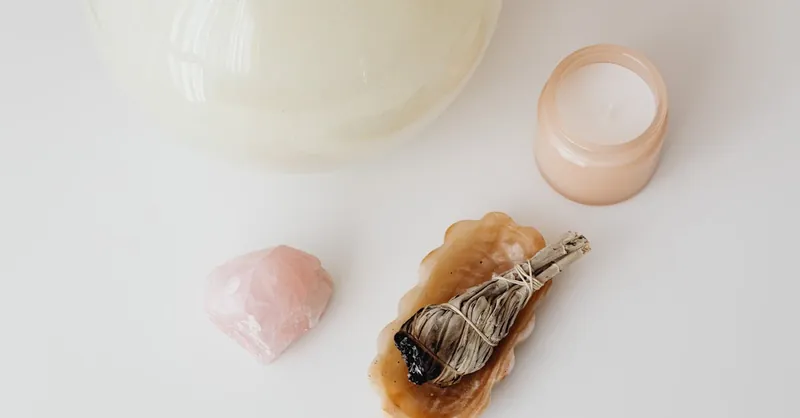
Image courtesy of Photo By: Kaboompics.com
Setting Boundaries and Saying No
A cornerstone of minimalist self-care is the mindful practice of setting boundaries and learning to say no. Prioritizing your commitments not only safeguards your time and energy but also creates essential space to nurture yourself genuinely. When you decline obligations that do not align with your values or well-being, you reduce unnecessary stress and prevent overwhelm—a common barrier to sustaining any self-care routine.
Why Boundaries Matter in Minimalist Self-Care
- Protect Your Time: Clear boundaries help you reserve time exclusively for activities and relationships that truly matter, allowing you to invest energy in self-care without feeling guilty or stretched too thin.
- Preserve Mental Energy: Constantly overcommitting drains mental resources and can trigger decision fatigue. Saying no reduces cognitive overload, enabling clearer focus on your core minimalist practices.
- Enhance Emotional Well-Being: Boundaries support emotional resilience by preventing burnout and fostering a sense of control over your life and priorities.
- Promote Authentic Relationships: When you honor your limits, you cultivate interactions based on mutual respect and honesty, enriching your social support system without unnecessary obligations.
How to Prioritize Commitments and Say No Gracefully
-
Evaluate Requests Against Your Priorities
Before agreeing to new commitments, pause to ask: “Does this support my well-being and minimalist goals?” If the answer is no or uncertain, it’s okay to decline. -
Use Clear and Respectful Language
Saying no does not require lengthy explanations. Simple, direct responses like “Thank you for thinking of me, but I need to focus on my current priorities” convey respect while protecting your boundaries. -
Set Limits Proactively
Communicate your availability in advance to avoid unexpected demands. For example, designate certain days or times as non-negotiable self-care periods. -
Recognize Your Right to Say No
Remember that declining requests is an act of self-care, not selfishness. Prioritizing yourself is essential to maintain energy and presence in all areas of life.
By making boundary-setting and saying no a habitual part of your minimalist self-care, you create the freedom needed to consistently engage in meaningful, restorative practices. This intentional preservation of your time and energy is fundamental to sustaining simplicity, reducing overwhelm, and cultivating a balanced, fulfilling life.
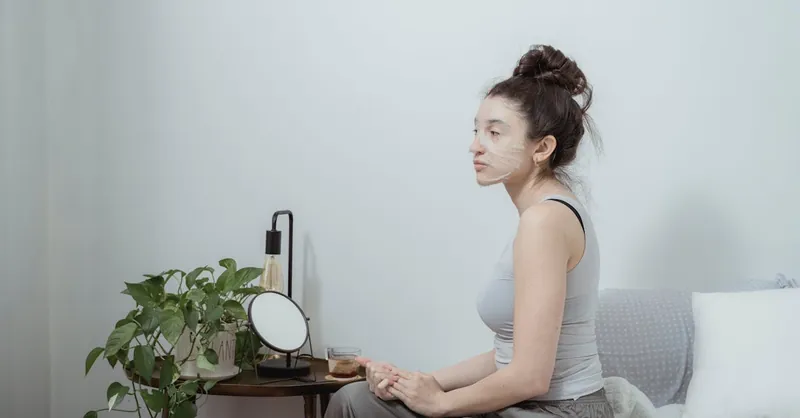
Image courtesy of Miriam Alonso
Sustaining Minimalist Self-Care Long Term
Keeping a minimalist self-care routine consistent over time requires a flexible mindset that honors your evolving needs without guilt or pressure. Sustainability is key—routines should adapt as your life circumstances, energy levels, and priorities shift, ensuring self-care remains a positive and empowering practice rather than a rigid obligation. To maintain momentum and deepen the benefits of minimalist self-care, consider incorporating simple strategies that track progress, encourage reflection, and allow gentle adjustments.
Tips for Staying Consistent and Adaptive
-
Track Your Self-Care Habits Mindfully
Use a minimal journal, habit tracker app, or calendar notes to record your self-care activities. This practice fosters awareness of patterns and highlights which habits feel most nourishing. Tracking is not about perfection but about noticing what supports your well-being consistently. -
Regularly Reflect and Reassess
Schedule brief monthly or quarterly check-ins to evaluate how your self-care routine aligns with your current needs. Ask yourself: - Which habits still uplift me?
- Are any routines causing stress or feel outdated?
-
What new practices might better serve my evolving lifestyle?
-
Allow Flexibility Without Guilt
Embrace the reality that some days your routine may be lighter or different—this is a natural part of sustainable self-care. Avoid self-judgment when life alters your schedule; instead, view these moments as opportunities to listen more deeply to your body and mind. -
Focus on Core Rituals That Anchor Your Practice
Identify the few self-care habits that consistently bring calm, clarity, or joy and prioritize these as non-negotiables. This core ensures stability even when other elements shift, helping maintain routine continuity with minimal effort. -
Celebrate Small Wins and Progress
Acknowledge your commitment to self-care, no matter how small the accomplishment. Recognizing positive steps reinforces motivation, making it easier to sustain minimalist self-care long term.
By implementing these strategies, you nurture a dynamic, guilt-free minimalist self-care routine that grows organically with you—supporting lasting well-being, mental clarity, and emotional balance while respecting your evolving lifestyle and limitations. This approach not only enhances the effectiveness of self-care but also exemplifies minimalist living’s true essence: simplicity, intention, and compassionate self-awareness.

Image courtesy of Gustavo Fring
